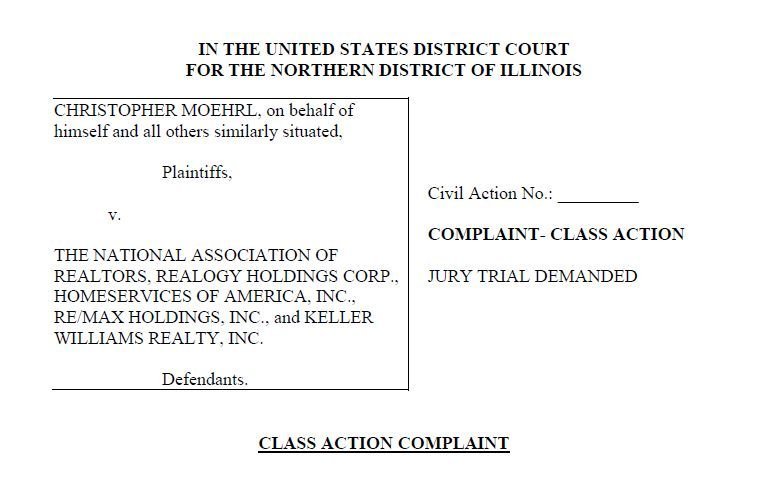Demystifying Class Activity Lawsuits: A Closer Consider Lawful Process
Class activity claims can be intimidating and complicated, typically shrouded in a shroud of mystery for those unfamiliar with the legal proceedings involved. Obtaining a deeper understanding of these legal actions is essential, as they offer as a powerful device for people to seek justice and hold corporations liable. In this conversation, we will certainly debunk course action legal actions, taking a more detailed look at the various aspects of the lawful process. From recognizing the requirements for class action qualification to the duty of course reps, and from the process of class accreditation to the resolution of these claims, we will unwind the ins and outs and lost light on the internal functions of this legal system. So, allow's dive into the world of course activity suits and discover the ins and outs that lie under the surface area.
Understanding Course Action Claims
Recognizing Course Activity Lawsuits calls for an extensive exam of the legal procedures included in collective litigation. Course action suits are a sort of lawful activity where a group of people with comparable claims or complaints collaborate to initiate a suit against an usual accused. This form of litigation enables individuals with limited sources to collectively seek justice, as it combines the toughness of multiple private insurance claims right into a single lawsuit.
The process starts with the identification of a lead plaintiff or class rep who files the preliminary grievance in behalf of the entire course. The court after that establishes whether the case meets the needs for course accreditation, which consist of commonality, numerosity, typicality, and adequacy of representation. If certified, the court notifies possible class members, providing a possibility to opt-out if they want to pursue their claims independently.
Once the class is accredited, the litigation proceeds through numerous phases, consisting of exploration, activity technique, and, if essential, trial. The end result of the suit can lead to a judgment or a settlement, which is binding on all class participants unless they select to opt-out. Course activity lawsuits can incorporate a variety of legal concerns, such as customer defense, securities fraud, employment discrimination, and environmental damage.
Recognizing the nuances of class action suits is essential for both accuseds and complainants entailed in collective lawsuits. It needs a detailed understanding of the legal needs for qualification, the civil liberties and obligations of course participants, and the possible advantages and threats connected with seeking or defending versus course activity cases.
Identifying Class Activity Eligibility
To figure out whether a lawsuit qualifies as a course activity lawsuit, certain requirements have to be fulfilled. These requirements are made to make sure that the situation can adequately represent the passions of a big team of people who have actually experienced similar harm or have been impacted by the same problem. The key aspect in recognizing course activity qualification is the visibility of an usual question or problem that influences all prospective class members.
Firstly, a class action lawsuit calls for numerosity, which suggests there need to be a substantial number of potential course participants entailed. This makes certain that a class activity is a reliable way to solve the claims of a big group of people, instead of having each individual submit an individual lawsuit.
Second of all, there need to be commonness among the cases of the potential class participants. This suggests that there should be an usual question of regulation or reality that is central to the situation. If each prospective course member's insurance claim is unique and unassociated to the others, a class Resources activity might not be suitable.

The Duty of Class Rep
Class agents play a crucial role in course action claims by standing for the interests of the entire course. These people are picked from within the class to serve as the public face of the suit and are accountable for making decisions on part of all course participants. The function of class agents entails different responsibilities and tasks throughout the lawful process.
Among the primary obligations of course agents is to provide details and support to their fellow course participants. They work as a factor of contact and communication in between the class members and the attorneys representing them. This includes keeping the class members notified around vital updates, addressing their inquiries, and attending to any type of worries they might have.
Course reps additionally have the obligation to proactively take part in the litigation process (BioVie class action lawsuit). This involves working very closely with the lawyers to establish legal approaches, collecting proof, and offering testimony if necessary. They have to be proactively entailed in all facets of the instance to make sure that the most effective interests of the whole class are represented
In addition, course agents are in charge of authorizing negotiations or various other resolutions gotten to in the lawsuit. They need to very carefully examine the terms of the negotiation and decide that is in the best interest of the entire course. This decision-making procedure requires cautious my website consideration and appointment with the course members.
The Refine of Class Qualification
The procedure of accrediting a class in a course action suit involves a complete assessment of specific requirements to identify if the situation satisfies the essential needs for course qualification. Course qualification is an essential action in the litigation procedure as it establishes whether a suit can proceed as a class activity, enabling a big group of people with similar claims to be represented collectively by one or a few people.
To acquire course certification, the plaintiff needs to demonstrate that the suggested course satisfies particular requirements. Typicality needs that the cases or defenses of the course agents are regular of those of the course. Adequacy of depiction guarantees that the course reps will rather and properly secure the interests of the class.
If the proposed course fulfills the necessary demands,The court will certainly scrutinize these requirements and the plaintiff's evidence to figure out. The court may additionally take into consideration other factors, such as whether a course action is the superior approach to resolve the dispute and whether the class is adequately natural.

Once the court grants course certification, the legal action can proceed as a course action, permitting the plaintiffs to jointly look for relief and possibly obtain a anchor judgment or settlement that benefits the whole course.
Managing Course Activity Lawsuits
Once class qualification has actually been provided, the next action in settling a course action suit is to browse the process of lawsuits or negotiation arrangements. Litigation refers to the lawful process in court, where the plaintiff's attorney offers proof and debates to support their claims, and the offender's attorney counters with their own evidence and arguments. This process can entail different phases, such as pretrial activities, exploration, and trial.
On the other hand, negotiation negotiations entail conversations in between the celebrations to get to an equally appropriate resolution without going to test. Settlement supplies might be made at any kind of stage of the lawsuits procedure, and if both parties concur, a negotiation arrangement is gotten to.
Conclusion
To conclude, course activity lawsuits play a vital role in offering justice and payment to large teams of people who have been damaged by the very same entity. By designating and licensing a course class agents, the legal procedure becomes a lot more effective and accessible for the complainants. Handling these claims can be a facility and prolonged process, however it is vital in holding firms answerable for their actions and guaranteeing fair end results for all affected parties.
From recognizing the requirements for class action eligibility to the duty of course reps, and from the process of class certification to the resolution of these claims, we will certainly decipher the ins and outs and lost light on the internal operations of this lawful system. The essential element in recognizing class action eligibility is the visibility of a common concern or issue that impacts all prospective course members.
If each possible class member's claim is unique and unconnected to the others, a class activity might not be suitable.
Course representatives play an important function in course activity claims by representing the rate of interests of the whole course.When course accreditation has actually been granted, the next action in fixing a course activity lawsuit is to browse the procedure of lawsuits or negotiation arrangements.